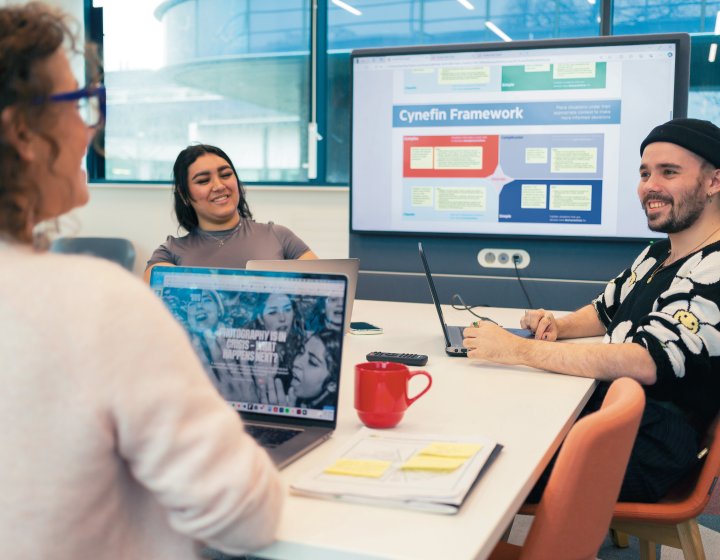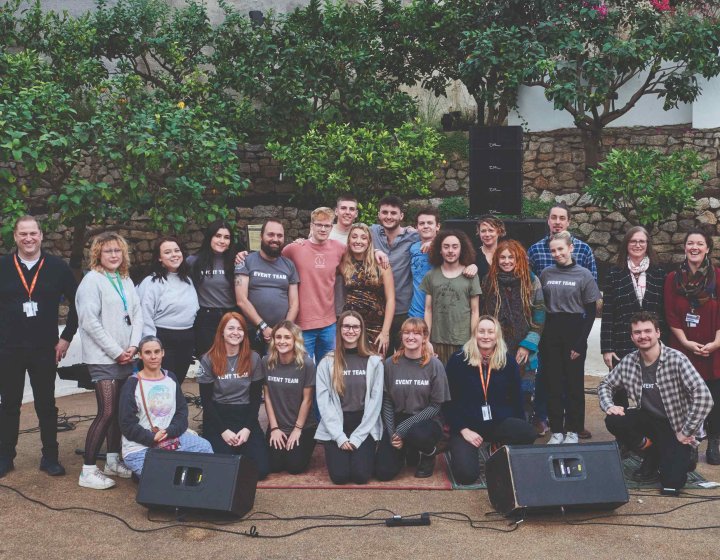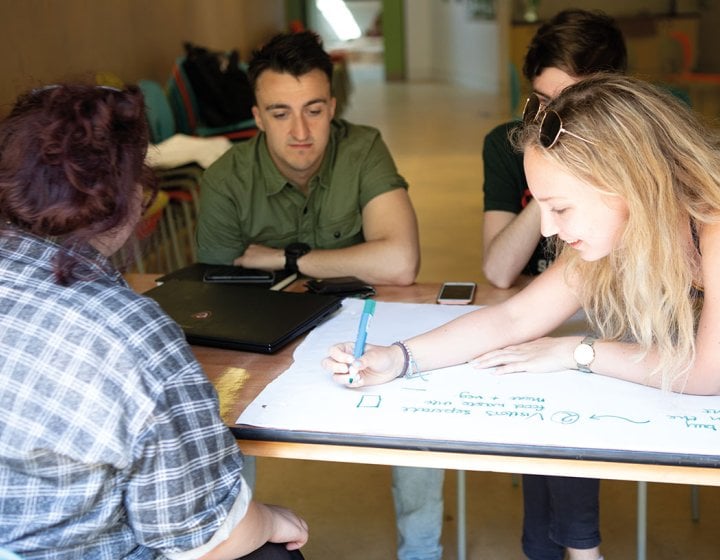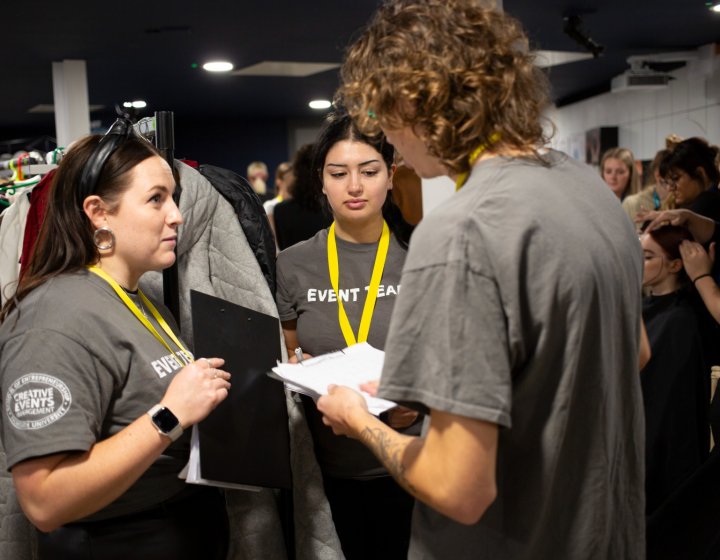6 Market research methods to boost business performance
07 November 2022

Whether it’s launching a new product or crafting the next marketing campaign, gut instinct and guesswork is rarely enough to drive a company forward. When it comes to key decision making, market research is integral to getting your business strategy on the right track.
In this article, we look at what market research is, why it’s important and various market research methods you can use to gather data and insights.
What is market research?
Market research is the process of gathering and analysing information in order to better understand your business and marketplace. For a business to succeed, it needs a deep understanding of who their customers are, what influences their behaviour and decisions to purchase products or services.
Why is market research important?
Market research is integral to the success of a company. It can be used to identify a business’ target market as well as give an understanding of how that business is perceived. Market research can also be used to better understand the market potential of a particular product or service, and companies can then use this data to adapt marketing strategies and boost business performance.
By understanding consumer needs, you can create a customer experience that targets preferences and pain points, making your product or service naturally appeal to them.
Market research can also help businesses to:
- Find effective ways to communicate with your current and potential customers by understanding their needs and wants
- Measure the demand for new products or services
- Minimise risk by testing new products or services before bringing them to market
- Benchmark your position within the market and measure your reputation against your competitors
- Identify your competitors in order to capitalise on opportunities and stay one step ahead
Primary vs secondary market research
Market research can be separated into two different types: primary and secondary.
Primary research is research that you can conduct yourself. It usually involves going directly to your target customers to ask questions and gather data. Examples of primary research include focus groups, surveys and interviews. Primary research tends to cost more and take longer to gather but the advantage is that data is of high quality and up-to-date – and can be completely tailored for your business.
Secondary market research uses information that has already been gathered and published by other parties. This may include reports or studies by government agencies, trade bodies, online journals, libraries and media stories. Although secondary research is readily available and low in cost, there’s also a risk of the data being out-of-date or unreliable.
Secondary research is commonly used in the early stages of research to provide base level for insights. Primary research can then be used to fill in any gaps or answer specific research questions.
Market research methods
Surveys
Surveys are a list of open-ended or closed questions given to your customers or target market, either online, via email, over the phone or in person. Surveys are highly versatile and can be tailored to gather a range of insights, whether you want to measure customer satisfaction, validate product development or improve user experience.
Focus groups
A focus group brings together a group of people – that should represent your target market – to provide feedback on a concept, product, service or campaign. A moderator leads the discussion by asking a series of questions that are designed to encourage thoughtful responses from all members in the group. An advantage of a focus group is that they provide immediate feedback and ideas on how to improve a product or service. A disadvantage is that they’re usually more expensive to run than other methods, as you usually need to offer incentives (like money or vouchers) for people to attend, as well as organise a location and travel.
Interviews
Interviews are usually conducted with an individual rather than a group, allowing for more personal and in-depth responses. Interviews offer an opportunity to gather qualitative data on your topic of interest, whether that’s on brand awareness, decision-making factors or product feedback.
Observational research
During a market research observation – also known as ‘UAT’ (user acceptance testing) or usability testing - a person, computer or camera observes an individual customer while they engage with a product or service. This method is especially useful and common with digital services like websites, or apps, though this method could also be observing customers in a store or analysing website data and heatmaps. This fly-on-the-wall approach allows businesses to see how their customers or potential customers interact with their products or services in a natural setting without being influenced by external bias.
Social media listening
Social media platforms offer an insight into our lives, with users freely expressing their thoughts and opinions, giving a wealth of data for researchers to tap into. Businesses can use social listening tools to track competitors, brand mentions, keywords to do with their products and understand how users perceive their business, competitors and wider industry. This method tends to be more expensive than other digital solutions, as there are a limited number of integrations with the major social networks.
Competitor research
Businesses are in a stronger position if they know how they perform against the market. Conducting research into your current and potential competition will help you to analyse how your products, services and marketing campaigns stack up against your competitors and lets you find areas to excel against the competition. This is an absolute staple of market research, and can be done using any of the methods above, plus traditional methods like mystery shopping or contacting existing customers.
Knowing how to conduct market research gives you a competitive edge in business. If you’re interested in learning more about market research methods, then take a look at our range of business and marketing courses. You’ll learn how to interpret real world market research examples, segment markets and analyse trends.
Explore our business and marketing courses

Creative Events Management MA (Online)
Falmouth’s online MA in Creative Events Management will support you to rise to the challenges in t...

International Business Management MSc
Learn to thrive in the fast-paced, ever-changing world of international business, adopting a sustain...

Business & Marketing BSc(Hons) (Online)
Become a skilled, confident, ethical and future-ready business and marketing professional with this ...

Entrepreneurship & Innovation Management MSc
Develop the practical skills to become a sustainable, creative innovator and resilient entrepreneur,...

Festival Management BA(Hons)
Working at the forefront of inclusivity, accessibility and sustainability, you‘ll gain the skills,...

Tourism Management BA(Hons)
Shape the tourist landscape of tomorrow on this innovative degree . Through work on live projects, y...

Business Entrepreneurship & Innovation BSc(Hons)
Develop the critical and practical skills you’ll need to shape a successful and conscientious care...

Business & Digital Marketing BSc(Hons)
Prepare yourself for a career in the fast-paced and ever-evolving world of business and digital mark...

Business Management BSc(Hons)
You’ll gain critical business theory and management expertise while responding to real-world team ...

Creative Events Management BA(Hons)
Learn how to take a creative and innovative approach to designing and delivering events. With entrep...




